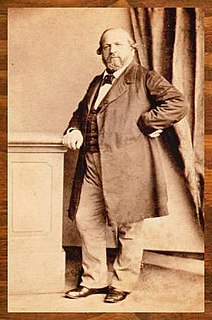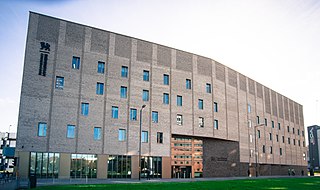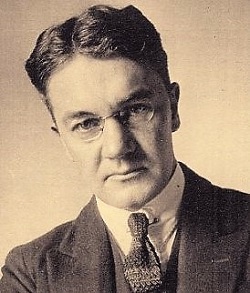Life and career
Born in Chilvers Coton, Warwickshire, [1] Halford was the son of a violinist, and when young sang in a local choir and played brass in a local orchestra. [3] He studied the organ under William Chater at nearby Holy Trinity Church, Coventry, and in 1875 moved to Birmingham, where he studied piano and composition under Charles Swinnerton Heap and was successively the organist at St John's Church, Wolverhampton from 1881, St Michael's Church, Handsworth from 1886 and St Mary's Church, Handsworth from 1891. [1] He graduated in 1892 as a Bachelor of Music from the University of Durham [1] and a fellow of the Royal College of Organists. [2] From then until 1927 taught piano and musical theory at the Birmingham and Midland Institute School of Music. [3]
William Chater was an organist, composer, conductor and teacher from Coventry.

Holy Trinity Church, Coventry, is a parish church of the Church of England in Coventry City Centre, West Midlands, England.

Birmingham is the second-most populous city in the United Kingdom, after London, and the most populous city in the English Midlands. With an estimated population of 1,137,100 as of 2017, Birmingham is the cultural, social, financial and commercial centre of the Midlands. It is the main centre of the West Midlands conurbation, which is the third most populated urban area in the United Kingdom, with a population in 2011 of 2,440,986. The wider Birmingham metropolitan area is the second largest in the United Kingdom with a population of over 3.7 million. Birmingham is frequently referred to as the United Kingdom's "second city".
Halford made his public concert debut at Birmingham Town Hall in 1884, performing Ferdinand Hiller's 2nd Piano Concerto, conducted by Heap. [3] In 1886, he was made conductor of the Birmingham Choral and Orchestral Association and in 1892 conductor of the orchestra of the Birmingham and Midland Institute School of Music. [4] By 1897 he had a great deal of experience conducting amateur choirs and orchestras around Birmingham, [3] and had travelled to Europe to study conducting. [5]

Birmingham Town Hall is a Grade I listed concert hall and venue for popular assemblies opened in 1834 and situated in Victoria Square, Birmingham, England.

Ferdinand (von) Hiller was a German composer, conductor, pianist, writer and music director.
In 1897, backed by a syndicate of 54 leading local citizens, he established George Halford's Orchestra, [6] which performed annual series of fortnightly concerts at Birmingham Town Hall for the next ten years. [3] Halford's ambitions were to establish a permanent orchestra of a quality to rival any in the country, made up primarily of local musicians. [3] Performing a wide range of challenging repertoire, the orchestra attracted attention from well outside Birmingham, including from major musical figures such as Richard Strauss and Sergei Rachmaninov, [7] and marked a major step in the development that would eventually lead to the establishment of the City of Birmingham Symphony Orchestra. [5] In 1906 Halford's players reformed themselves into the self-governing Birmingham Symphony Orchestra, [8] with Halford remaining as Music Director but only conducting half of the concerts. [9]
George Halford's Orchestra was a professional symphony orchestra based in Birmingham, England from 1897 to 1907 and an important precursor of the later City of Birmingham Symphony Orchestra.

Richard Georg Strauss was a leading German composer of the late Romantic and early modern eras. He is known for his operas, which include Der Rosenkavalier, Elektra, Die Frau ohne Schatten and Salome; his Lieder, especially his Four Last Songs; his tone poems, including Don Juan, Death and Transfiguration, Till Eulenspiegel's Merry Pranks, Also sprach Zarathustra, Ein Heldenleben, Symphonia Domestica, and An Alpine Symphony; and other instrumental works such as Metamorphosen and his Oboe Concerto. Strauss was also a prominent conductor in Western Europe and the Americas, enjoying quasi-celebrity status as his compositions became standards of orchestral and operatic repertoire.

The City of Birmingham Symphony Orchestra (CBSO) is a British orchestra based in Birmingham, England. It is the resident orchestra at Symphony Hall, Birmingham, which has been its principal performance venue since 1991. Its administrative and rehearsal base is at the nearby CBSO Centre, where it also presents chamber concerts by members of the orchestra and guest performers.
As a guest conductor he performed with orchestras including the London Symphony Orchestra at the Royal Albert Hall and the Bournemouth Symphony Orchestra. [4] He served as a member of the management committee of the City of Birmingham Orchestra (now the City of Birmingham Symphony Orchestra) after its foundation in 1920. [10]

The London Symphony Orchestra (LSO), founded in 1904, is the oldest of London's symphony orchestras. It was set up by a group of players who left Henry Wood's Queen's Hall Orchestra because of a new rule requiring players to give the orchestra their exclusive services. The LSO itself later introduced a similar rule for its members. From the outset the LSO was organised on co-operative lines, with all players sharing the profits at the end of each season. This practice continued for the orchestra's first four decades.

The Royal Albert Hall is a concert hall on the northern edge of South Kensington, London, and is one of the UK's most treasured and distinctive buildings. The Hall is a registered charity held in trust for the nation, and receives no public or government funding. It can seat 5,267.

The Bournemouth Symphony Orchestra (BSO) is an English orchestra with a remit to serve the South and South West of England. Founded in 1893, the BSO has developed a reputation as one of the UK's major orchestras and has worked with many of the world's leading composers, conductors and performers. Originally based in Bournemouth, the BSO moved its offices to the adjacent town of Poole in 1979.
Halford was a prolific composer of orchestral, chamber and vocal music, much of which was published by Alfred Novello. [3] His church music included anthems such as Remember not, Lord, our offences (1886) and The Souls of the Righteous (1915); a cantata The Paraclete (1891) and a Te Deum in D major. [1] His overture In Memoriam was performed at The Proms at the Queen's Hall in London on 11 October 1906. [11] Recalling the concert in 1938 the conductor Henry Wood pronounced the work "excellent" and concluded "Birmingham has always taken pride in its music, and when the full history of its activities comes to be written the name of George Halford should not be overlooked. Birmingham owes him a great deal". [12]
Joseph Alfred Novello was an English music publisher. He was the eldest son of Vincent Novello, and the creator of Novello and Company Ltd as a revolutionary force in music publishing.
An anthem is a musical composition of celebration, usually used as a symbol for a distinct group, particularly the national anthems of countries. Originally, and in music theory and religious contexts, it also refers more particularly to short sacred choral work and still more particularly to a specific form of Anglican church music.
A cantata is a vocal composition with an instrumental accompaniment, typically in several movements, often involving a choir.
He retired in to Cleeve Prior in Oxfordshire and died in Kidlington in 1933. [4]










